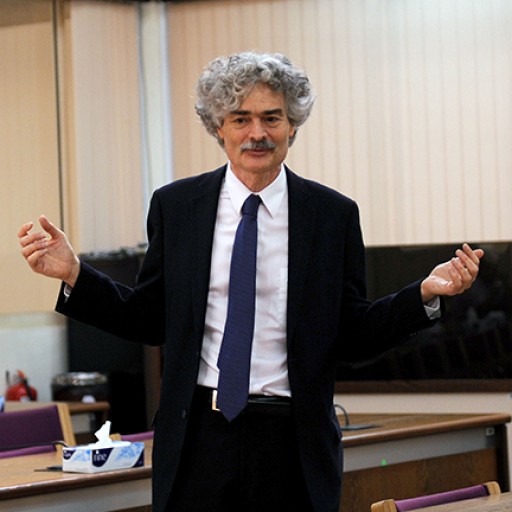This page posts information about upcoming conferences and calls for papers.

June 23-25, 2016
Call for Papers: The East and Europe Conference, University of Amsterdam
This conference invites researchers from various disciplines within the humanities to share their scholarly interest in the cultural interaction and exchange that has taken place since antiquity between ‘the East’ and ’Europe’, and in the processes of societal transformation and identity construction involved. Through critical, multidisciplinary, diachronic and comparative approaches this conference intends to explore the dynamics between the two geographical and conceptual constructs: ‘the East’, whether identified with Byzantium, Islam, Eastern Christianity, Asia, or other characteristics, and ‘Europe’, as the perceived counterpart of the variously defined ‘easts’ or as in itself the embodiment of western cultures’ self-ideal? The deadline for abstracts is 11 March 2016.
More information on: http://ashms.uva.nl/news-and-events/news/news-ashms/news-ashms/content-2/folder/2015/11/co…
Please be so kind to send your abstract (300 words max.) before March 11th to Inge Kalle-den Oudsten: i.kalle-denoudsten@uva.nl We’ll inform you further in the beginning of April. All other correspondence to Mirjam Hoijtink, coordinator of the UvA Research Group The East & Europe: m.h.e.hoijtink@uva.nl
We will try to meet you in travel costs and help to logistically facilitate your stay in Amsterdam.

27-28 May, 2016
The international workshop “Talking about ‘Arabs’: Echoes from different Europes” will focus on the ways in which knowledge about ‘Arabs’ is produced in different parts of Europe. The workshop will be held on 27-28th May 2016 at The Czech Academy of Sciences in Prague.
Participants are asked to submit an abstract of 500 words and short bio until 21st February (limited funding available). For more information please see the description available here : http://www.orient.cas.cz/sd/novinky/hlavni-stranka/160201.html

27-28 April 2016
The Forum for Arab and International Relations in Doha, Qatar invites researchers to participate in its forthcoming conference on Islamophobia.
Blind fears of Islam and demonizing Muslims, the basic constituents of Islamophobia, have become a life-threatening phenomenon depriving Muslims of their right to lead a normal life in their own societies and in host countries. The recent attacks on Muslims in Europe and the US are clear instances of both the results and causes of these phobic fears, which will have dire consequences for all parties concerned in decades to come.
Consciously or not, the western media has long been stereotyping Islam and propagating Islamophobia, through articles, interviews, programmes, conferences and other biased activities in which the moderate voice has very rarely been heard. Movies, caricatures and offensive verbal and visual images that deliberately insult Muslims and denigrate the symbols of Islam have contributed to forming the current culture of hate and mutual distrust. The “war on terror”, the mounting economic crisis and increased labour competition have added fuel to fire. They have further fomented antagonistic populist and religious sentiments, often dwelling on cliched anecdotes from a shared, problematic history – the Crusades, colonialism, Israeli aggression, recent western invasions of Islamic countries, etc. Islamophobia has in turn mutated in new forms and formulas reinforcing the politics of exclusion, violence, racism and fear from the unknown future.
We believe it is imperative for intellectuals, academics and opinion makers to study the phenomenon of Islamophobia, analyze its causes and effects, come to terms with its hard realities, develop counter ideas and arguments, and contribute to easing the underlying tensions that have harmed the ethics of coexistence and cooperation and hampered the pursuit of happiness for all humans.
Topics of interest:
Islamophobia: The root causes and the multiple manifestations
Islamophobia: The hard realities
Are western fears of Islam, Muslims and/or the Islamization of western countries justified? To what extent are Muslims acknowledged as legitimate and productive members of their host societies? Why do Muslims feel more alienated the harder they try to integrate? Why do they feel so persecuted, so pressed to turn their Islamic institutions into centres of surveillance and spying on other Muslims? Why are they implicated in violent crimes against their host countries on fabricated or at best “secret evidence”? What are those “secret lists” in UK and USA? Is Islamophobia one reason why some misguided Muslim youths opt out by leaving to areas of armed conflicts? Isn’t that rather a cop out?
Islamophobia: Contributing factors
The impact of Christian extremism
The impact of Islamic extremism
The role of anti-Semitism and the rise of racist and xenophobic ideologies:
(PEGIDA, the National Front, Western Conservatism)
Islamophobia: The wider issues
How really secular are western societies?
Freedom of expression and the need to “rethink multiculturalism”
The “war on terror”
The western media
The economic crisis and the rising tide of western populism
The politics of exclusion
Anti-Muslim legislations
Combating Islamophobia:
The positive roles and responsibilities of governments, institutions, NGOs, as well as individuals in combating the phenomenon of Islamophobia and finding solutions for it
Researchers and interested individuals are asked to submit abstracts (a maximum of 1000 words) of their papers specifying the topic and the method of inquiry (by March 15th 2016). It is preferable to send the complete paper prior to the conference, but it is possible to submit it in its final form by May 30th 2016.
FAIR will be responsible for the arrangements and expenses of travel and accommodation. There will also be remuneration for the accepted papers in their final version for publication.
For further information please contact the conference organizing committee at research@fairforum.org
![]()
